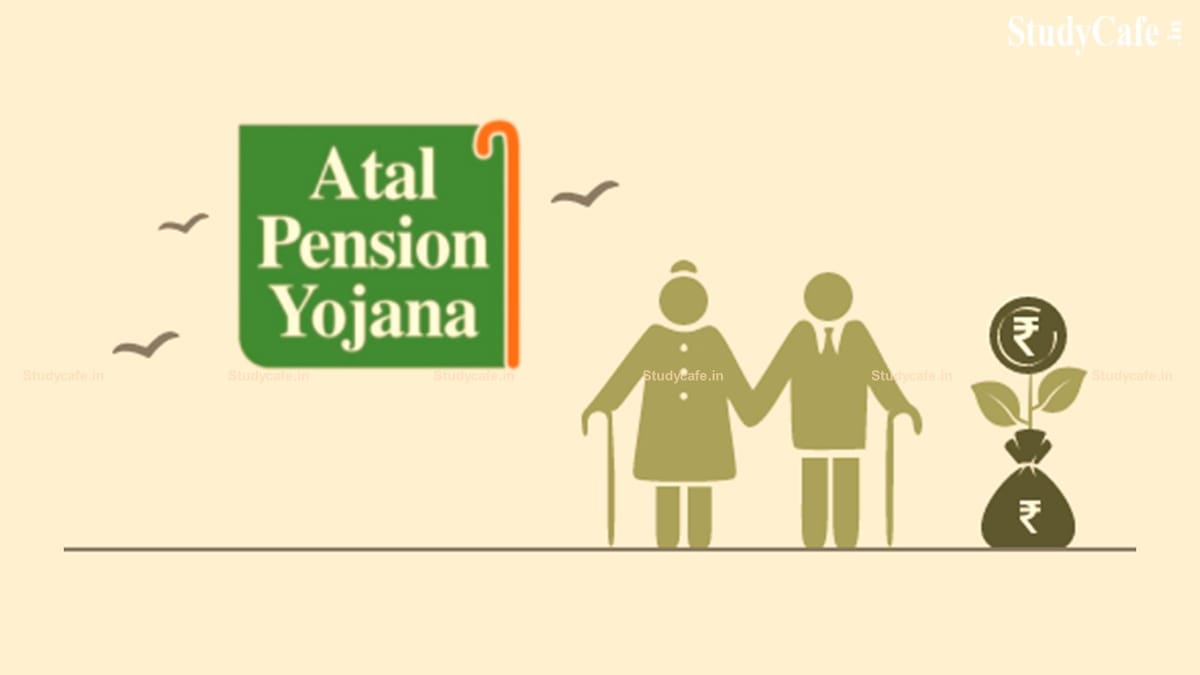Deepshikha | Jun 12, 2022 |

All About Atal Pension Yojana (APY)
On May 9, 2015, our honourable Prime Minister, Shri Narendra Modi, launched three JAN SURAKSHA programmes. Atal Pension Yojana (APY), Pradhan Mantri Jeevan Jyoti Bima Yojana (PMJJBY), and Pradhan Mantri Suraksha Bima Yojana (PMSBY) are the three plans.
PMJJBY and PMSBY are insurance-related programmes, whereas APY is an Indian pension scheme aimed mostly at unorganised sector workers. At the age of 60, the APY scheme guarantees a minimum pension of Rs. 1,000/-, 2,000/-, 3,000/-, 4,000/-, and 5,000/- per month, depending on the payments made by the subscribers.
In the event of the subscriber’s death, the subscriber’s spouse will get the pension amount, and if both (the subscriber and spouse) die, the accumulated pension corpus will be delivered to the subscriber’s nominee.
Let’s take a closer look at the Atal Pension Yojana (APY) scheme in the form of a FAQs:
The APY plan is open to all Indian citizens. The eligibility requirements are as follows:
Yes, the beneficiaries of any social security scheme can also enroll for this scheme.
No, each person is only allowed to have one account. To open an APY account, you must first have a savings account.
Approach the bank branch where you have your savings account. Fill out the APY application. Please provide your Aadhaar or mobile number. Maintain the required balance in the savings bank account for monthly contribution transfer.
All contributions are to be remitted monthly by auto-debit from the subscriber’s savings bank account.
The provision of an Aadhaar number is not required to open an APY account. In the long run, however, Aadhaar would be the key KYC document for identifying beneficiaries, spouses, and nominees to avoid pension rights and entitlement conflicts.
From the age of 60, the amount of your lifelong pension is determined by the number of contributions you made during the accumulation period. The value of the pension varies between Rs 1,000 and Rs 5,000 (in multiples of 1000).
PFRDA (Pension Fund Regulatory and Development Authority) or the government administers the APY scheme. (National Pension System – NPS) is also administered by PFRDA.)
Subscribers who join the scheme between June 1, 2015, and December 31, 2015, and who are not covered by any Statutory Social Security Schemes and are not income taxpayers, will be eligible for government co-contribution for five years, from 2015-16 to 2019-20. That means that if you contribute to EPF or other similar plans, you will not be eligible for government co-contribution payments.
Default shall be considered non-maintenance of the required balance in the savings bank account for contribution on the designated date. Banks are required to collect an additional fee for late payments, which can range from as little as Rs.1 per month to as much as Rs.10 per month, as indicated below:
The following conditions and features of the Atal Pension Yojana Scheme have been modified by the government:
1. Instead of making a monthly donation, APY users will now be able to make contributions on a monthly, quarterly, or half-yearly basis.
2. The provision for the discontinuation of contribution payment has been significantly changed in the subscriber’s favour. The account will not be deactivated or deleted until the account balance with self-contributions minus Government co-contributions is zero after account maintenance costs and fees have been deducted.
3. In addition, the penalty for late payment has been reduced to Rs. One (1) per month for each delayed monthly payment of Rs.100, or a portion thereof, rather with the previous multiple slabs.
4. Similarly, early exit from the plan before the age of sixty was not authorised unless there were special circumstances, such as the beneficiary’s death or severe illness. The modified provision now allows subscribers to voluntarily exit with the following conditions:
In case of any Doubt regarding Membership you can mail us at contact@studycafe.in
Join Studycafe's WhatsApp Group or Telegram Channel for Latest Updates on Government Job, Sarkari Naukri, Private Jobs, Income Tax, GST, Companies Act, Judgements and CA, CS, ICWA, and MUCH MORE!"